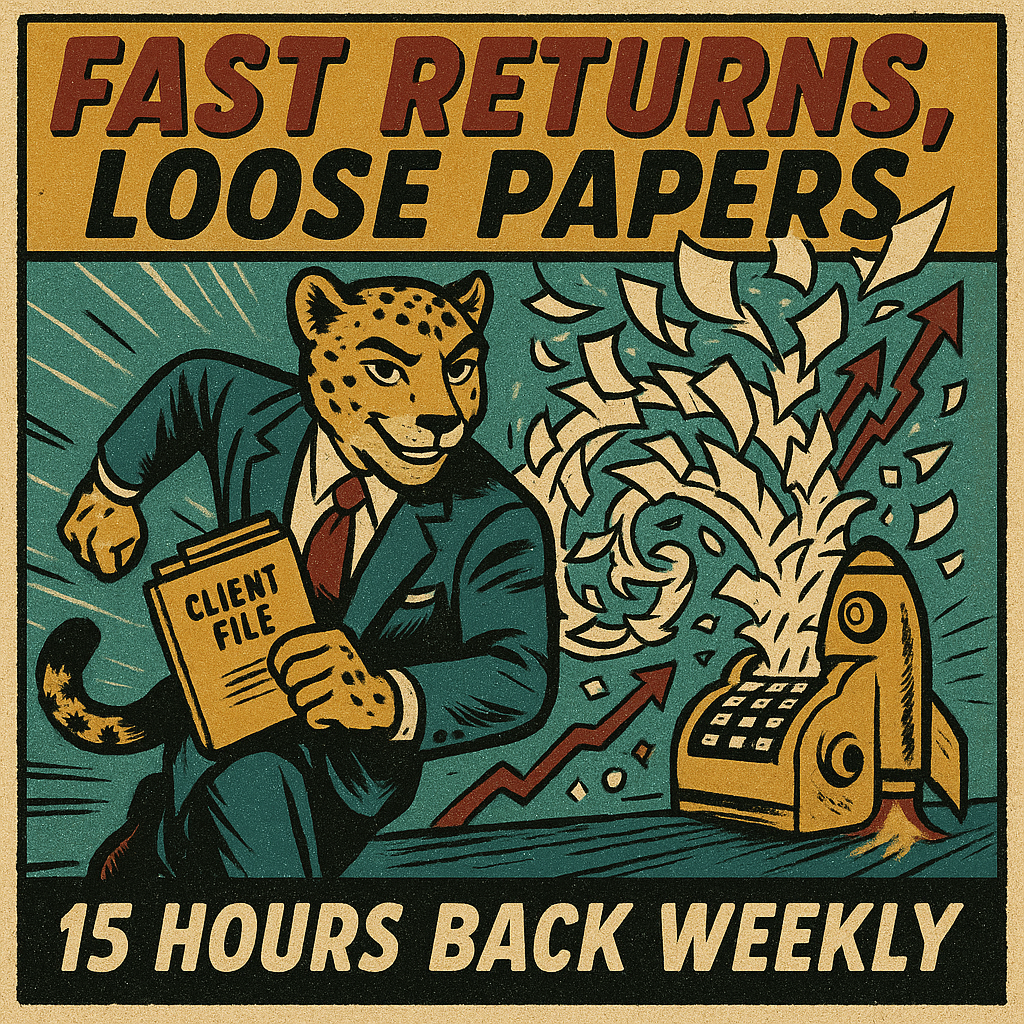Agentic AI Risks, Big-Firm Blindspots: How Small Accounting Firms Can Spot Trouble Early and Win More Profit
Published on July 4, 2025
All content is general and does not constitute financial advice.
Hidden Pitfalls of Agentic AI: Why Big Firms Keep Stumbling
The headlines say the giants have AI “everywhere.” Peel back the curtain and you find blindspots big enough to drive a ledger truck through. The UK Financial Reporting Council flagged Deloitte, PwC and friends for not tracking AI’s effect on audit quality —only licence counts and usage logs [Financial Times]. When a system that writes workpapers can’t prove it improved them, bias and error slip in unnoticed.
Agentic AI adds another twist. It doesn’t just crunch numbers; it decides what to do next. If the training data skews male-founder start-ups as “riskier,” the agent may nudge funding and valuations in that direction. Small firms often assume they’re “too tiny to worry,” yet autonomy means one rogue script could email every client the wrong EBITDA. And with vendors racing features out the door, patches arrive slower than the month-end close.
The resource gap hurts here. Big Four teams have ethics officers but also bureaucratic lag. Smaller practices have agility but may lack guardrails. Result: everyone is exposed, just for different reasons. Spot the pattern early and you turn risk into billable rescue missions.
What Sloppy AI Governance Really Costs—Your Clock, Your Wallet, Your Clients
Ignored risks don’t stay hidden. A McKinsey model shows firms without clear AI oversight burn up to 40 % more in rework and exception handling [McKinsey]. That’s Thursday night you wanted back with the family, now lost to debugging mis-posted journals.
Regulators circle, too. High-risk AI under the EU AI Act demands audit trails and bias tests. Miss a step and penalties reach €30 000 per infraction—roughly two weeks of partner profit at a five-person firm. Even if fines land elsewhere, clients read the news and wonder, “Will my statements be next?” Trust erodes faster than June 30 hits your inbox.
Reputation carries a hidden multiplier. Prospects choose firms that explain AI in plain English. When you can’t say why the bot flagged their cash flow, they look elsewhere. Every lost engagement is tens of thousands in lifetime value. Protecting transparency isn’t fluffy ethics; it’s margin.
A Playbook Small Firms Can Run Before Lunch
-
Draw the lines. Draft a one-page AI policy: scope, data access, human sign-off. Keep it live in your practice management hub. Update quarterly. Use the agility big firms envy.
-
Pick tools that publish the “why.” Favour platforms with explainable models and SOC 2 reports. Kick the tyres on a free sandbox before committing. Our own doc-capture engine shows its work step by step—book a five-minute demo.
-
Monitor like you reconcile. Set dashboard KPIs: error rate, turnaround time, bias test results. Review monthly; adjust weekly during busy season. A simple traffic-light report saves frantic Friday fixes.
-
Stay human-in-the-loop. Routing payroll exceptions to a senior within two clicks keeps expertise front and centre. It also passes the EU “meaningful human oversight” test.
-
Turn governance into revenue. Offer an “AI controls review” service for your clients’ finance teams. We’ve seen firms bill $8 000 per engagement with minimal extra hours. The market is wide open while Big Four committees debate templates.
Need the tech backbone to make it stick? See how Doc Cheetah automates data capture, audit trails and client comms—full feature list here. Reclaim the hours, cement the trust, and watch profit per partner climb while the goliaths keep tripping over their own algorithms.
How Doc Cheetah Solves This
Smart policies are only as strong as the data pipeline they guard. If clients still email PDFs at midnight, your AI audit trail has holes—and so does your profit per partner. Doc Cheetah stitches the whole process into one secure, measurable flow so you hit every governance checkbox and reclaim the hours.
Turn chaotic uploads into clean, compliant data
• Magic Link uploads: Clients click once—no passwords, no “forgot login” tickets. Completion rates jump to 96 %.
• Smart checklists: Every request is pre-tagged with due dates and owner, creating an audit trail the EU regulators love.
• OCR auto-filing: Statements land in the right folder with the right name, ready for your AI tools to analyse—zero manual drag-and-drop.
Governance without extra headcount
• Real-time progress tracker: One dashboard shows who sent what and when. That’s your evidence for “meaningful human oversight.”
• Automated reminders: The “cheetah” chases documents, logs every nudge, and escalates politely. No more he-said-she-said threads.
• Bank-level security & SOC 2 alignment: Share this with risk-averse prospects and watch conversion rates climb. Details live on our security page.
The profit math
• Firms save 2.5 hours a day—roughly 600 hours per partner each year.
• That’s $120 k in capacity, or room for ten new advisory clients at $12 k each.
• Client NPS rises; extensions and write-offs fall. Everyone wins, except your competition.
Next steps—five minutes, tops
- See your own data flow in action. Book a live demo.
- Check the numbers with our ROI sheet—instant download inside the demo room.
- When you’re ready, pick a plan that fits today and scales tomorrow. Transparent tiers are on our pricing page.
Free your team from the document chase, lock down AI risk, and turn the saved hours into billable advice. Doc Cheetah makes it clockwork.